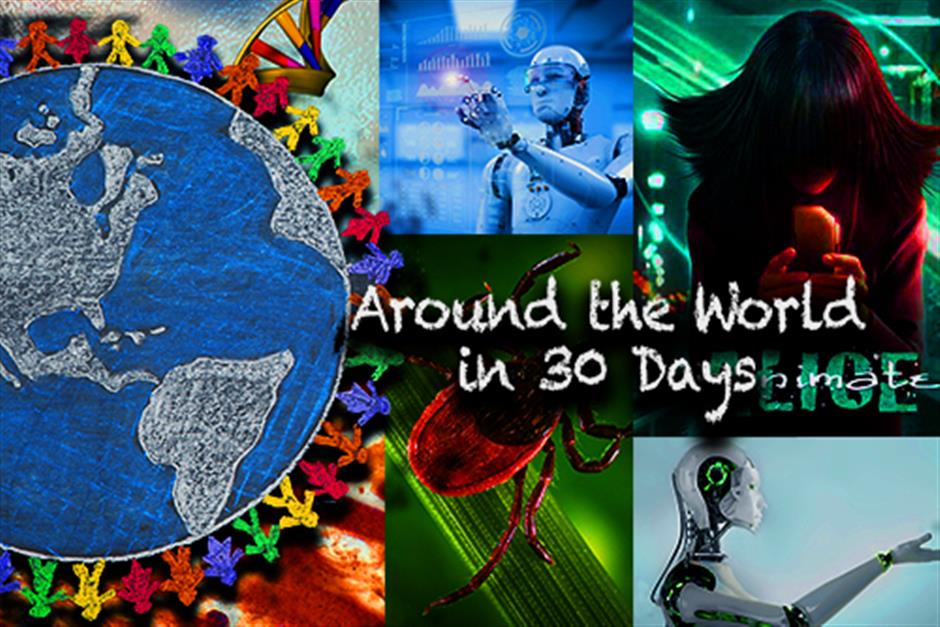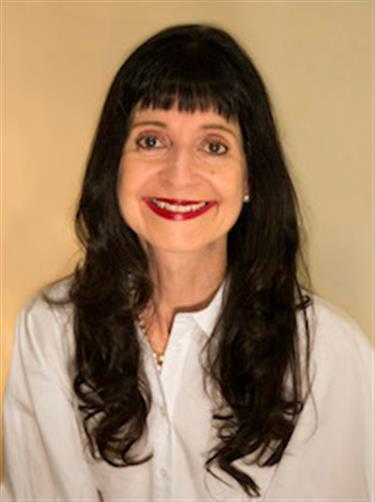Around the World in 30 Days

C. M. Rubin’s Global Education Report
There’s a robot in each of our backpacks. And in the years ahead, the Alexa’s of this world will drastically change the way we live, the way we learn and the way we teach. Some Futurists warn us that robots will take away most of our jobs. Could a robot replace a teacher? Should a robot replace a teacher? This month our Top Global Teacher Bloggers discuss the kinds of teachers who will continue to flourish in the Fourth Industrial Revolution. “The 21st Century classrooms are not marked by one center of authority – i.e. the teacher as all-knowing – but by many more,” notes Maarit Rossi. “The students are also authorities on technology, with the teachers as content masters and learned guides.” Adam Steiner writes, “Our schools need to resist the urge to ‘go robot’ and instead focus on timeless human qualities: creativity, compassion and critical thinking.” And Craig Kemp believes it is an “exciting, yet scary time for us all, but a time that needs to be embraced by the Education community with open arms.”
In the decades ahead, the countries that dominate AI in any domain could influence how our world is shaped. Jeff Ding leads research on China’s development of artificial intelligence at the Future of Humanity Institute’s Governance of AI Program at Oxford University. Ding’s latest study, “Deciphering China’s AI Dream”, is a detailed analysis of China’s AI strategy moving forward. He joined us in The Global Search for Education this month to share his perspectives on what his findings may mean for China’s education system and jobs, among other things. Ding notes, “While AI could open up job opportunities in smart health, smart finance, smart transportation, and other new domains, even China’s State Council acknowledges that the government will have to deal with some of the social aftershocks of AI’s economic implications.”
Advanced technologies are changing our world every day and this is impacting our understanding of global illnesses and opening up new pathways for incurable diseases. As an example, most people know someone who has been affected by Lyme disease, the most common tick-borne illness in the US with more than 300,000 cases diagnosed each year. In a timely new book, Conquering Lyme Disease, Columbia University Medical Center physicians Brian A. Fallon and Jennifer Sotsky reveal that despite the challenges to find a cure for this complex, debilitating disease, precision medicine and biotechnology are accelerating the discovery of new tools with which doctors will be able to diagnose it and treat patients. The Global Search for Education welcomed Dr. Brian Fallon to find out how tech is tackling the ticks.
Imagine a story that transports you to every corner of the world – a virtual journey that you help create because it is not just the author’s tale about his protagonist – indeed you are required to be part of the journey. The ways in which young people who are digital natives communicate continue to change dramatically. Stories in which they are creating as well as consuming media content have become a relevant way to nurture literacy skills in areas of reading, writing, speaking, and listening. Ian Harper is the creator of Inanimate Alice, a digital story that uses game-like techniques to capture the audience’s imagination. These games and puzzles require resolution before the story continues. In the beginning, they are very simple, but as the protagonist grows up, the games become more complex. This month we also welcomed Ian Harper to talk about Inanimate Alice and story-telling for a new world.
Technology democratized media. Media is now more fragmented than ever, with a combination of “expert” and “non-expert” storytellers seeking audiences and “clicks”. We live in truth-challenged times. What happens when the public at large is clicking more often on fake news versus real news? What impact does what you click have on society and the public good? What technological tools should we create to help us click “truth”? This month we focused on a new MIT study, “The Spread of True and False News Online”, by three scholars, Sinan Aral, Deb Roy and Soroush Vosoughi, in which the authors found that false news spreads more rapidly and extensively on the social network Twitter compared to real news.
We then asked our Millennial Bloggers to weigh in and share their perspectives on the lack of trust in “expert” opinion, what’s driving it and what we can do about it. Make “experts human,” says Zita Petrahai. “Part of the problem of the era of mistrust is that experts are regarded as the out of touch elite, who have no conceivable idea about what everyday folk need,” Alison Rao notes. She believes this might mean “exposing the wrong news source, or having actual scientists, experts, people in academia, etc. explain to the public the real facts, possibly in a more fun or effective way so that a general audience can easily understand the information in a short amount of time.”
Our thanks to all our contributors and supporters around the world.

C. M. Rubin
Join me and globally renowned thought leaders including Sir Michael Barber (UK), Dr. Michael Block (U.S.), Dr. Leon Botstein (U.S.), Professor Clay Christensen (U.S.), Dr. Linda Darling-Hammond (U.S.), Dr. MadhavChavan (India), Charles Fadel (U.S.), Professor Michael Fullan (Canada), Professor Howard Gardner (U.S.), Professor Andy Hargreaves (U.S.), Professor Yvonne Hellman (The Netherlands), Professor Kristin Helstad (Norway), Jean Hendrickson (U.S.), Professor Rose Hipkins (New Zealand), Professor Cornelia Hoogland (Canada), Honourable Jeff Johnson (Canada), Mme. Chantal Kaufmann (Belgium), Dr. EijaKauppinen (Finland), State Secretary TapioKosunen (Finland), Professor Dominique Lafontaine (Belgium), Professor Hugh Lauder (UK), Lord Ken Macdonald (UK), Professor Geoff Masters (Australia), Professor Barry McGaw (Australia), Shiv Nadar (India), Professor R. Natarajan (India), Dr. Pak Tee Ng (Singapore), Dr. Denise Pope (US), Sridhar Rajagopalan (India), Dr. Diane Ravitch (U.S.), Richard Wilson Riley (U.S.), Sir Ken Robinson (UK), Professor Pasi Sahlberg (Finland), Professor Manabu Sato (Japan), Andreas Schleicher (PISA, OECD), Dr. Anthony Seldon (UK), Dr. David Shaffer (U.S.), Dr. Kirsten Sivesind (Norway), Chancellor Stephen Spahn (U.S.), Yves Theze (LyceeFrancais U.S.), Professor Charles Ungerleider (Canada), Professor Tony Wagner (U.S.), Sir David Watson (UK), Professor Dylan Wiliam (UK), Dr. Mark Wormald (UK), Professor Theo Wubbels (The Netherlands), Professor Michael Young (UK), and Professor Minxuan Zhang (China) as they explore the big picture education questions that all nations face today.
The Global Search for Education Community Page
C. M. Rubin is the author of two widely read online series for which she received a 2011 Upton Sinclair award, “The Global Search for Education” and “How Will We Read?” She is also the author of three bestselling books, including The Real Alice in Wonderland, is the publisher of CMRubinWorld and is a Disruptor Foundation Fellow.
Follow C. M. Rubin on Twitter: https://twitter.com/@cmrubinworld
















